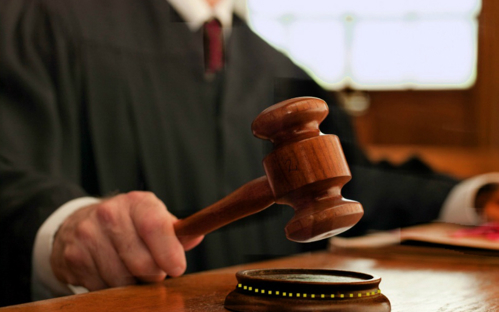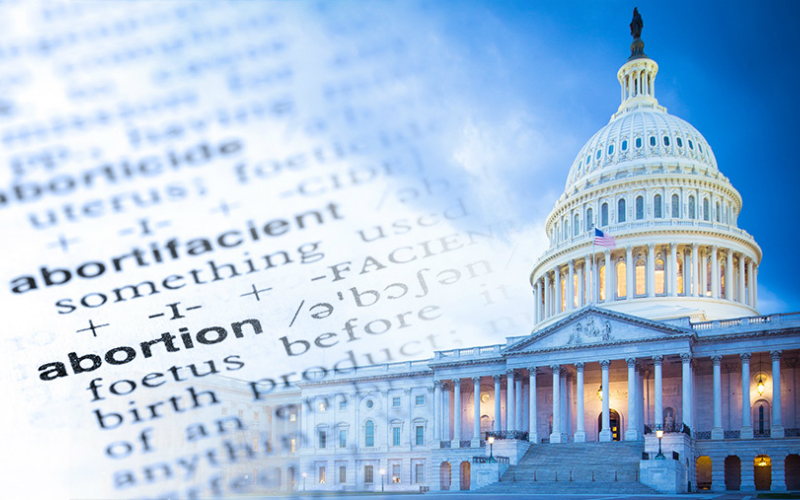Such efforts remain alive in both the House and Senate, a congressional response to what Republicans see as activist Democrat-appointed district court judges who are bent on stopping President Donald Trump’s agenda when given the opportunity.
Currently, there are 94 district courts with more than 700 judges across the country. These courts are the starting points for any federal cases, any prosecutions brought by the United States whether civil or criminal.
 The founding fathers aimed to balance local and national interests with district courts at the low end of a three-tiered system that includes appellate courts at the circuit level then the Supreme Court. The Constitution provides the legislative branch some checks on the judiciary, among them the authority to set the jurisdictions for all courts below the Supreme Court.
The founding fathers aimed to balance local and national interests with district courts at the low end of a three-tiered system that includes appellate courts at the circuit level then the Supreme Court. The Constitution provides the legislative branch some checks on the judiciary, among them the authority to set the jurisdictions for all courts below the Supreme Court.
That’s the central focus of the two live bills.
“This, I assume, would be not even a question for Republicans. It's a hugely popular bill to rein in some of these lower-court activists that we're seeing who are making sweeping judgments, stopping all of President Trump's agenda,” Suzanne Bowdey, editorial director for The Washington Stand, said on Washington Watch Wednesday.
There have been 100-plus lawsuits filed to stop Trump so far.
The core issue in the Senate bill sponsored by Chuck Grassley (R-Iowa) and the House bill sponsored by Darrel Issa (R-California) is the authority currently granted allowing district judges, responsible for an area that may include a handful of counties, to make decisions that affect the entire nation.
In more than two months, district courts that are traditionally focused on matters within their defined areas have issued a whopping 15 injunctions against the three-month-old Trump administration. That is more than were faced by Barack Obama and Joe Biden, who had 12 and 14 during their entire presidencies.
Boasberg brings simmering problem to boiling point
The most well-known has been the restraining order issued by Washington, DC, District Court Judge James Boasberg, telling Trump to return a plane loaded with what the White House has said were known criminal gang members.
The administration ignored the order, saying the plane was already in international air space when it received verbal instructions from Boasberg.

Bowdey is highly critical of such judicial orders. “These are unelected district court judges. There are about 700 of them in the country who are able to put the brakes on a president, completely usurping his executive authority,” she told show host Tony Perkins.
Grassley’s bill (S.1206) limits the impact of judges’ decisions to the district they serve. Issa’s bill (H.R.1526) would do essentially the same thing. Issa’s bill received bipartisan support when it passed out of committee. It’s not clear that Grassley has received any Democratic support.
The issue of objectionable lower-court authority cuts both ways. Former President Joe Biden accused Texas Attorney General Ken Paxton of “judge shopping” when Paxton challenged Biden policies in 2023.
Paxton found a sympathetic ear in Texas Northern District Judge James Wesley Hendrix, a Trump appointee in 2019, who ruled the Biden administration could not enforce a provision in a $1.7 trillion spending package that related to Texas because less than half of lawmakers were physically present when it was passed.
Abusing the system
But clearly, the number of judges issuing injunctions against the Trump agenda is unprecedented.
“If you look back to the Obama administration, he was in office eight years, there were 12 national injunctions when Obama was in office," Bowdey outlined. "We've already seen almost 20 for President Trump, and you're talking about big issues – DEI, federal workers, his power on illegal immigration, deportations. It’s completely out of control.”
With or without bipartisan support, Congress has the authority to limit the reach of district court judges – and as Bowdey explained, Republicans have the seats in each chamber to get it done if they agree to it among themselves.
“This is completely within their purview to say, ‘Let's take a look at what these people are doing and get it back to the parties involved.’ If someone's suing, it should be them that's affected – not the entire country [and] not put an agenda on an entire hold,” Bowdey argued.













